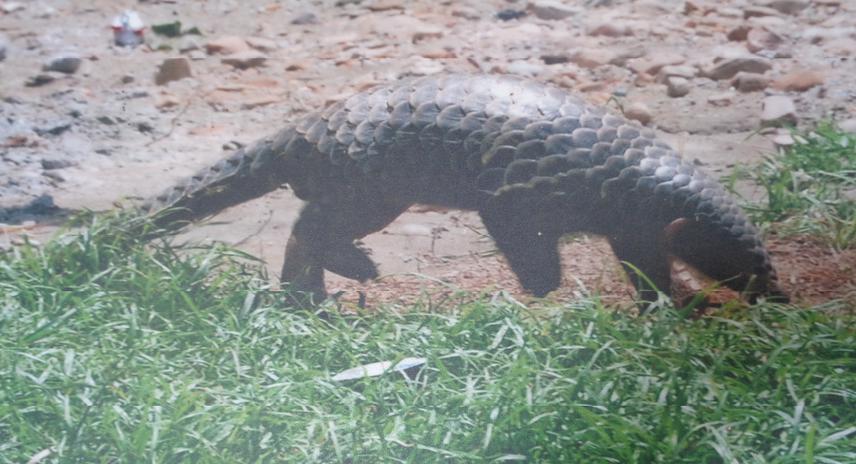Nirjala Raut
To determine the conservation threats to Indian Pangolin (Manis crassicaudata) and to motivate youth towards conservation of the species through different conservation campaigns.

Chinese Pangolin found in study area during field visit.
Nepal Government is trying to conserve the Indian Pangolin (Manis Crassicaudata) but the number of species is still decreasing in these 50 years time period. The project aims at determining the threats to the Indian Pangolin and to define solutions to conserve the species through different awareness raising activities. The proposed study will be carried out in Rani Community forest of Makwanpur district, where some portion of the forest is declared as Pangolin conservation area. Although the area is allocated for the Pangolin conservation, the threats to the pangolin has not been decreased. There has been still cases recorded regarding poaching of the species. The major threats to the species include rapid loss and deterioration of available habitat, poaching for local use and international trade for skins, scales and meat. Most of the local youths of the project area are unaware about the importance of the species resulting in poaching of species for food and money. The wood cutters (who are the users of the forest and use the forest resources esp. the firewood as fuel for cooking) are also equally responsible in decline of the species by destroying the habitat of Pangolin. This project thus is proposed to make baseline information regarding drivers of decline (habitat destruction, hunting, trade etc) and to device solutions to conserve the species through raising awareness activities and empowering youth towards pangolin conservation.
Once the problem is identified, it will be disseminated through different awareness raising activities among wide range of audiences. This types of activities will be facilitated by different persons who are directly involved with conservation of species especially forestry students, high school teachers, forest user groups and other youths from the project area. They can convince the woodcutters, hunters, community people who are directly or indirectly involved in the decline of the species by killing, illegal trade and deteriorating the habitat of the species. This will help people realize their mistake which will eventually help to reduce the threats to the Indian Pangolin.